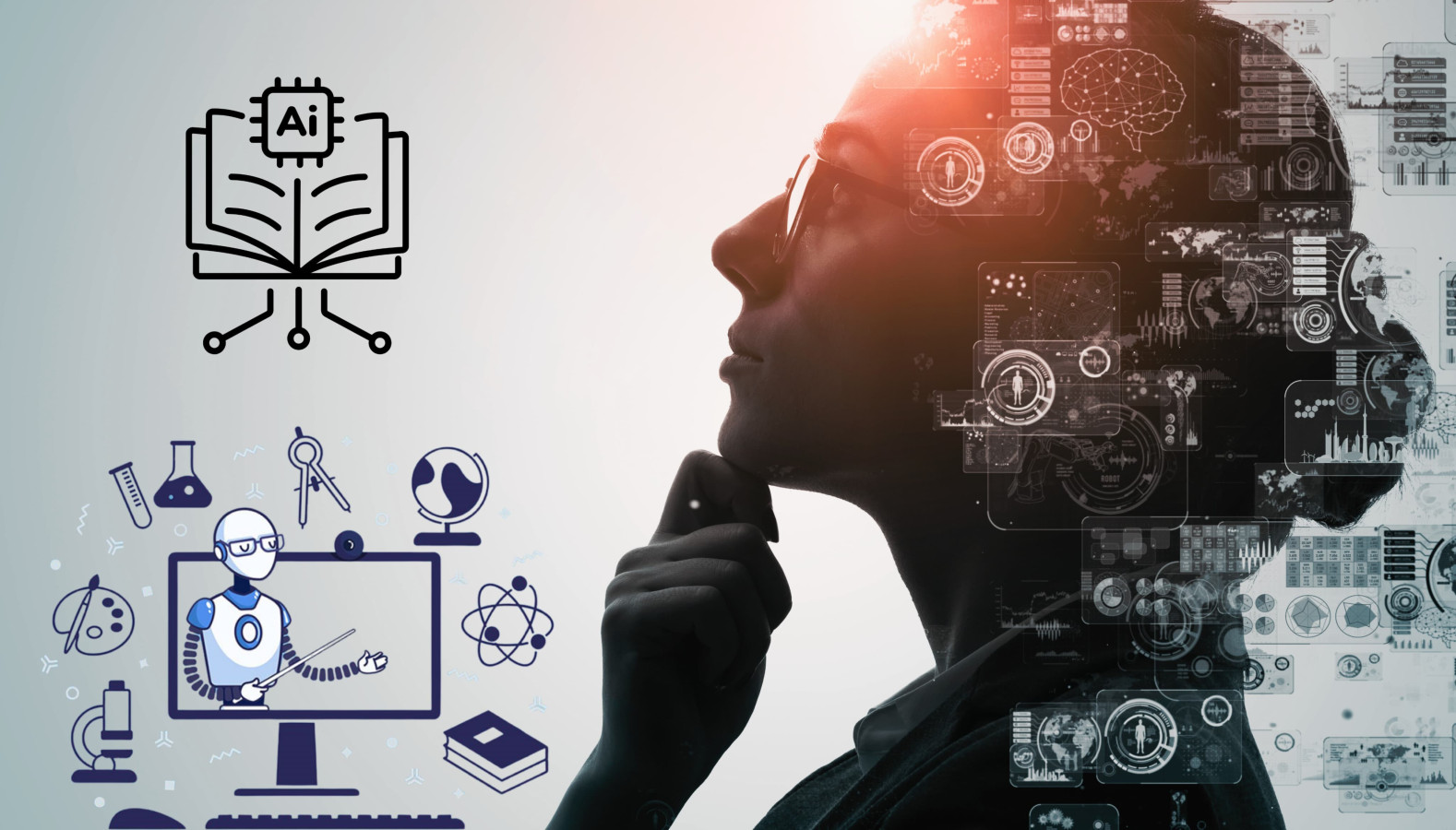Introduction: Overcoming Decades-Old Challenges with AI
The Indian education system has long faced challenges such as overcrowded classrooms, teacher shortages, inadequate infrastructure in rural areas, and a rigid teaching approach. According to the Indian Ministry of Human Resource Development (MHRD), the average pupil-to-teacher ratio in primary schools is 45:1 (MHRD, 2019), making personalized attention difficult. Additionally, disparities between urban and rural institutions hinder equal access to quality education.
Artificial Intelligence (AI) is emerging as a game-changer, revolutionizing education by making learning more personalized, accessible, and efficient. The global AI education market is projected to grow from $177 billion in 2023 to $2,745 billion by 2033 (AllAboutAI, 2023). In India, AI is being integrated into educational systems to address traditional challenges and prepare students for a digital future.
AI Transforming Indian Education Across Multiple Boards
AI is revolutionizing India's education system, bringing innovation and efficiency across various boards. The CBSE curriculum now includes AI, Data Science, and Machine Learning to equip students with future-ready skills, while AI-powered personalized learning tools are enhancing student performance. Schools affiliated with CBSE are collaborating with ed-tech firms like BYJU’S to implement adaptive learning platforms.
Similarly, ICSE integrates AI for holistic education, analyzing student progress and fostering problem-solving abilities. The IB board leverages AI for personalized instruction and global collaborations, enabling virtual exchanges and interactive learning experiences. Meanwhile, NIOS is utilizing AI to bridge educational gaps by providing remote learners with adaptive learning tools and uniform assessment systems.
In the AISSCE, AI plays a crucial role in ensuring examination integrity by automating grading and detecting irregularities. As AI continues to reshape Indian education, it enhances accessibility, engagement, and fairness, paving the way for a more efficient and inclusive learning ecosystem.
Empowering Indian Teachers with AI: A Transformative Shift in Education
AI is reshaping the teaching landscape in India by providing educators with intelligent tools that enhance classroom management, personalize instruction, and improve student engagement. Adaptive learning platforms, powered by AI, analyze student performance and dynamically adjust lesson plans to cater to individual learning needs. This is particularly beneficial in large classrooms where personalized attention is often a challenge.
AI also automates administrative tasks such as attendance tracking, grading, and progress reporting, significantly reducing teachers’ workload and allowing them to focus more on student interaction and concept reinforcement. Additionally, data-driven feedback mechanisms help educators identify learning gaps, track student progress, and refine their teaching strategies based on real-time analytics.
Beyond efficiency, AI enhances student engagement through interactive tools like gamification, virtual labs, and AI-powered simulations that make subjects such as Science, Technology, Engineering, and Mathematics (STEM) more immersive. Platforms like Google Classroom, IBM Watson Education, and Microsoft AI for Education are increasingly being adopted in Indian schools to create a tech-driven learning ecosystem.
With AI’s growing influence in education, the role of teachers is evolving from traditional knowledge providers to facilitators of experiential learning. However, for successful AI integration, teacher training programs must be implemented to equip educators with the necessary skills to leverage AI effectively. By embracing AI-driven methodologies, Indian teachers can transform conventional education into a more efficient, inclusive, and student-centric learning experience.
Transforming Student Learning in India with AI: Bridging Gaps and Enhancing Inclusivity
AI is making education in India more inclusive, personalized, and accessible to students across diverse backgrounds. One of AI’s most impactful contributions is enhancing inclusivity for students with special needs. AI-powered assistive tools such as voice recognition, text-to-speech conversion, and real-time captioning enable students with disabilities to access educational content effortlessly. These innovations align with initiatives like the Accessible India Campaign, promoting equal learning opportunities.
Moreover, adaptive learning platforms like BYJU’S, Vedantu, and Toppr customize educational content based on individual learning paces and styles. This is particularly beneficial in a country like India, where learning disparities between urban and rural students are significant. AI-powered platforms help bridge this gap by providing tailored educational experiences that cater to diverse student needs.
Language barriers have also been a major challenge in India’s multilingual education system. AI-driven language learning applications like Duolingo and Google’s Bolo facilitate multilingual education by offering personalized, interactive learning experiences, helping students improve their language proficiency.
Addressing Challenges: The Digital Divide, Ethical Concerns, and Teacher Training
Despite its transformative potential, AI in education faces several hurdles. The digital divide remains a major challenge, with many rural areas lacking reliable internet connectivity and access to digital devices. Government and private sector initiatives must work towards improving digital infrastructure and ensuring affordable access to AI-driven education.
Another critical challenge is teacher training. AI integration in classrooms requires educators to be proficient in using AI-powered tools. Comprehensive training programs and workshops must be introduced to equip teachers with the necessary skills to leverage AI effectively.
Additionally, AI raises ethical concerns regarding data privacy, algorithmic bias, and fairness in education. Ensuring transparent AI models and strict regulatory frameworks will be crucial in safeguarding student data and maintaining equitable learning environments.
As India moves towards a tech-driven education system, addressing these challenges will be key to ensuring AI’s responsible and effective implementation, ultimately transforming student learning and fostering an inclusive, dynamic, and future-ready educational ecosystem.
Conclusion: The Future of AI in Indian Education
AI is set to redefine India’s education system by making learning more accessible, personalized, and efficient. With AI-driven tools enhancing curriculum design, student engagement, teacher support, and administrative efficiency, AI integration promises to bridge gaps in learning opportunities and empower educators to deliver better instruction.
However, the road to a fully AI-integrated education system is not without challenges. Overcoming technological barriers, ensuring equitable digital access, and training educators to effectively use AI tools will be critical for its success. Ethical concerns surrounding data privacy, bias in AI algorithms, and the responsible use of technology must also be carefully addressed through strong regulatory frameworks and transparent AI systems.
By proactively addressing these challenges, India can harness the full potential of AI to create a more efficient, inclusive, and future-ready education system.

